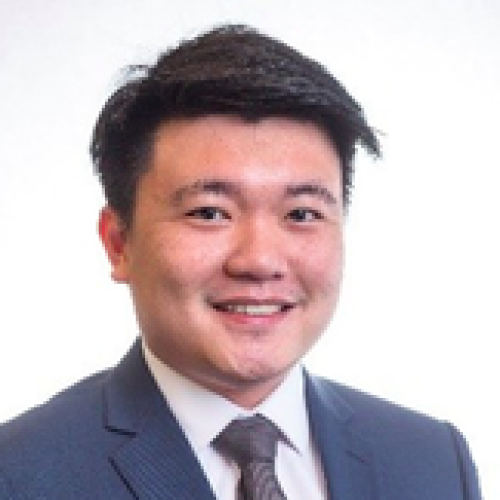SMU RPA Series: Tech Lab 4 - RPA Governance and Roadmap Development
- Analytics & Tech
- Innovation & Business Improvement
To use your SkillsFuture Credit, please submit your claim through our payment portal. Do not submit the claim manually via the SkillsFuture page. Please refer to our step-by-step guide here.
16 hours
Who Should Attend
Corporate professionals from back-office functions such as HR, Finance, IT, Procurement, etc.
Overview
There’s no one-size-fits-all approach when it comes to implementing RPA. Each automation rollout needs to be adjusted to a company’s organisational setting and requires thorough planning. Another essential element involves designing an appropriate operating model. The earlier an organisation-wide operating model is defined, the higher the likelihood of RPA’s benefits being realised sooner. Being proactive in delineating an RPA operating model involves the translation of a strategic automation plan into operating requirements and decisions. Such a “blueprint” dictates what processes will be automated, to which employees RPA responsibilities should be assigned, how the software will be integrated into the IT landscape, and more.
This Tech Lab is an add-on to the Core Module to help companies/ organisations with their project initiatives specific to RPA implementations.
Under the guidance of seasoned industry practitioners and experienced digital leaders from EY, this Tech Lab helps a business or organisation embark on RPA implementation within their company/ organisation by helping to build data-driven business decision-making practice and plan a cohesive digital transformation.
Learning Objectives
At the end of the 16 hours' worth of hands-on project with facilitated guidance, advisory and learning, participants will be able to:
- Draw up a clear roadmap to scale investment in RPA for the company/ organisation
- Define the roles and organisational structure to develop and scale the use of RPA across the enterprise
- Understand the set-up prioritisation based on cost reduction, quality management and employee experience
Assessment
As part of the requirement for SkillsFuture Singapore, there will be an assessment conducted at the end of the course. The mode of assessment, which is up to the trainer’s discretion, may be an online quiz, a presentation or based on classroom exercises.
Participants are required to attain a minimum of 75% attendance and pass the associated assessment in order to receive a digital Certificate of Completion issued by SMU Academy.
Calculate Programme Fee
Fee Table
| EMPLOYER-SPONSORED | |||
|
PARTICIPANT PROFILE |
SELF-SPONSORED |
SME |
NON-SME |
|
Singapore Citizen < 40 years old Permanent Resident LTVP+
|
$654 (After SSG Funding 70%) |
$254 (After SSG Funding 70% |
$654 (After SSG Funding 70%) |
|
Singapore Citizen ≥ 40 years old |
$254 (After SSG Funding 70% |
$254 (After SSG Funding 70% |
$254 (After SSG Funding 70% |
|
International Participant |
$2,180 (No Funding) |
$2,180 (No Funding) |
$2,180 (No Funding) |
All prices include 9% GST
Please note that the programme fees are subject to change without prior notice.
Post Secondary Education Account (PSEA)
PSEA can be utilised for subsidised programmes eligible for SkillsFuture Credit support. Click here to find out more.
Self Sponsored
SkillsFuture Credit
Singapore Citizens aged 25 and above may use their SkillsFuture Credits to pay for the course fees. The credits may be used on top of existing course fee funding.
This is only applicable to self-sponsored participants. Application to utilise SkillsFuture Credits can be submitted when making payment for the course via the SMU Academy TMS Portal, and can only be made within 60 days of course start date.
Please click here for more information on the SkillsFuture Credit. For help in submitting an SFC claim, you may wish to refer to our step-by-step guide on claiming SkillsFuture Credits (Individual).Workfare Skills Support Scheme
From 1 July 2023, the Workfare Skills Support (WSS) scheme has been enhanced. Please click here for more details.
Employer Sponsored
Enhanced Training Support for SMEs (ETSS)
- Organisation must be registered or incorporated in Singapore
- Employment size of not more than 200 or with annual sales turnover of not more than $100 million
- Trainees must be hired in accordance with the Employment Act and fully sponsored by their employers for the course
- Trainees must be Singapore Citizens or Singapore Permanent Residents
- Trainees must not be a full-time national serviceman
- Trainees are eligible for ETSS funding only if their company's SME status is approved prior to the course commencement date. To verify your SME's status, please click here.
Please click here for more information on ETSS.
Absentee Payroll
Employers who sponsor their employees for the course may apply for Absentee Payroll here. For more information, please refer to:
AP Guide (Non-SME Companies)
Declaration Guide (SME Companies)
Loading schedule information...







